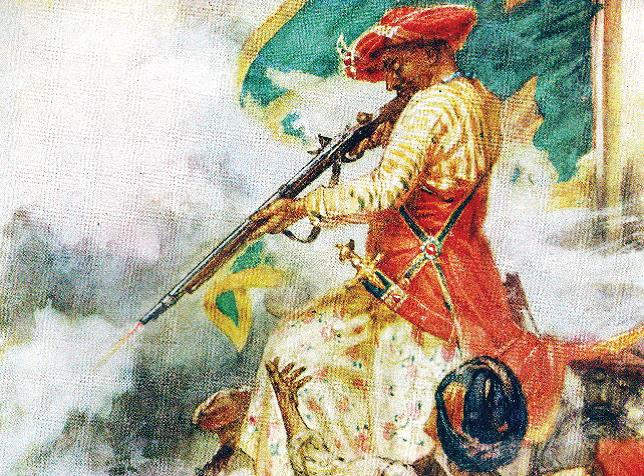
Unsung Muslim freedom fighters remembered
Bengaluru, NT Bureau: In the lead up to Independence Day, Muslim religious leaders of Bengaluru emphasized the pioneering role that their co-religionists played in the struggle for Indian independence from British colonial rule.
Speaking exclusively to News Trail, Muslim leaders said the Muslim ‘ulema’ (scholars) sacrificed their life in the anti-colonial struggle but were unsung. Naasih Educational Trust president Maulana Shabbir Ahmed Nadvi said the Indian Muslim military struggle against the British went back to mid-18th century.
He pointed out that the Nawab of Bengal Siraj-UdDaulah fought and lost the Battle of Plassey against the British in 1757.
Nadvi has penned a booklet ‘The Initial Struggle For India’s Independence’ which was published in English, Urdu and Kannada.
Mysore leads way
The scholar said Mysore monarch Hyder Ali achieved success against the British in the first Anglo-Mysore War, which lasted from 1767 to 1769. He also won two battles in the second AngloMsyore War, which began in 1780. However, Hyder Ali died in 1782, following which his successor Tipu Sultan took the reins.
He fought two more Anglo-Mysore wars before being killed by the British in 1799 during the siege of Srirangapatna. “Tipu Sultan’s struggle was not about protecting his kingdom but rather about ousting the British and saving the country,” he said.
He also argued that it was the Islamic scholars who laid the foundation for the anti-colonial struggle. “It was Hazrat Mualana Sher Shah Abdul Aziz Dehlavi, the son of the illustrious scholar and dynamic leader Shah Waliullah, who gave a verdict (fatwa) in the year 1803, that the fight against British rule was obligatory on all Muslims,” Nadvi said, adding that anywhere between 27,000 and 50,000 Muslims were “martyred” by the British.
“There were Islamic scholars hung on trees along the GT Road in Delhi,” he said. Mohammad Abdul Wahid Khan, a late 19th and early 20th century Islamic scholar and freedom fighter, better known as Muslim Vellori, was also praised.
He was born in Ganjam village in Srirangapatna taluk of Mandya district. ‘Reshmi Rumal’ movement praised
Chief Imam of Bengaluru’s Jamia Masjid Maqsood Imran Rashadi said that the "Reshmi Rumal Tehreek” (Silk Handkerchief Movement) stood out for its defiance of the British.
The movement started by Islamic scholars of Dar Ul Deoband seminary in Uttar Pradesh aimed to enlist the help of the Amir (leader) of Afghanistan, the Ottoman Sultanate and the German monarchy against the British between 1913 and 1920.
It got its name because Mohammad Mian Mansoor Ansari, the grandson of one of the co-founders of the Deoband seminary, travelled to the Hejaz region of Arabia and returned to India in April 1916 with a message written in a silk handkerchief, which became synonymous with the movement.
“The silk handkerchief movement put an end to the hopelessness and depression that had arisen among the Muslims after the failure of the first nationwide war of independence and also created a new energy and enthusiasm in their spirit of Hurriyat (freedom),” Maqsood Imran said.
 English daily published in Bengaluru & Doha
English daily published in Bengaluru & Doha






